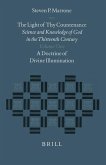The fall of Samaria is narrated in 2 Kings 17. The cuneiform inscriptions dealing with this event are prima facie contradictory: the conquest is ascribed to both Shalmaneser V and Sargon II. The surmise of H. Tadmor that Samaria was conquered twice is investigated. At the same time the events are interpreted in their socio-historical framework. Tadmor's assumption cannot be falsified, although his theory should be modified as regards the date of the first conquest: 723 B.C.E. The fall of Samaria can be interpreted as an inevitable result of the expansion of the Assyrian Empire in combination with internal struggles in Israel. Evidence of deportation reveals that deportees were treated as normal citizens. Thorough discussion of the sources and their interpretation is a feature of this book.








